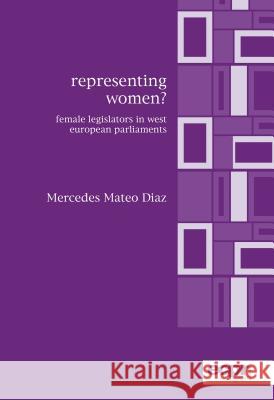Representing Women?: Female Legislators in West European Parliaments » książka
Representing Women?: Female Legislators in West European Parliaments
ISBN-13: 9780954796648 / Angielski / Miękka / 2005 / 292 str.
This work discusses questions on political participation, representation and legitimacy in the European Union national parliaments. Three major empirical questions structure the book: What affects women's presence in parliaments?, Does the number of women in parliament have an effect? And are women in parliament representing women? Empirical evidences show that institutional reforms need a 'minimal environment' in terms of socio-economic development so as to prove effective. As opposed to the critical mass theory, claiming that a few representatives cannot have an impact on the political outcomes, here the empirical evidences suggest that smaller groups can also influence the different components of the legislative process. The last part turns to the fundamental question of whether a parliament that is descriptively representative, i.e. in which the parliamentarians share certain characteristics with the voters, also is a substantively descriptive parliament, i.e. in which the parliamentarians mirror the voters' opinions.
This book examines political participation, representation and legitimacy in the national parliaments of European Union countries. The book is organised around three major questions: What affects womens presence in parliaments? Does the number of women in a parliament have an effect? Do women in parliaments represent women?The evidence presented here shows that, to be effective, institutional reforms need a minimal environment with respect to socioeconomic factors. Contrary to the critical mass theory, which claims that a few representatives cannot have much of an impact on political outcomes; in this book, empirical evidence suggests that smaller groups of women can influence different components of the legislative process.The final part of the book turns to the fundamental question of whether a parliament that is descriptively representative - in which the parliamentarians share certain characteristics with the voters - will also be substantively descriptive, with parliamentarians mirroring voters opinions. The author argues that an electoral systems level of proportionality influences the extent to which parliament and assemblies mirror their populations, socially and ideologically.











